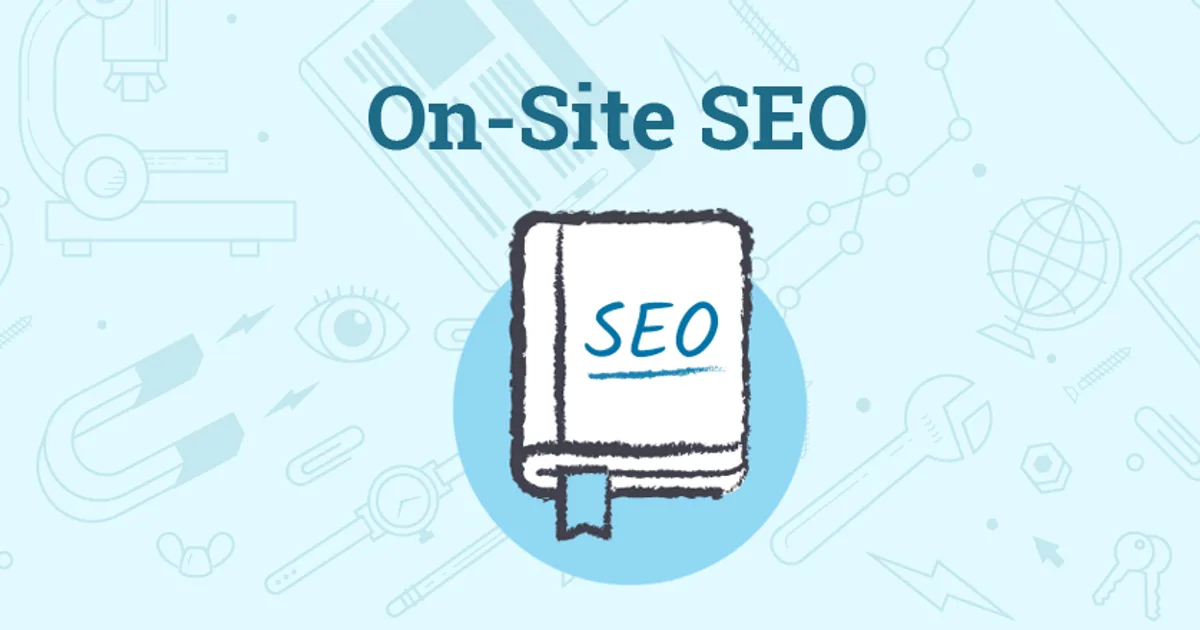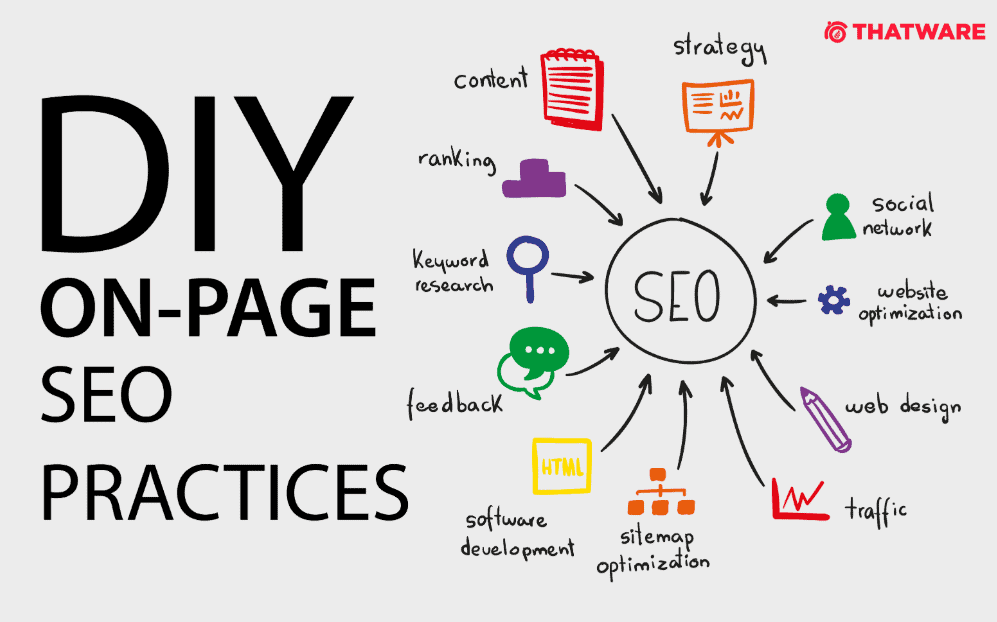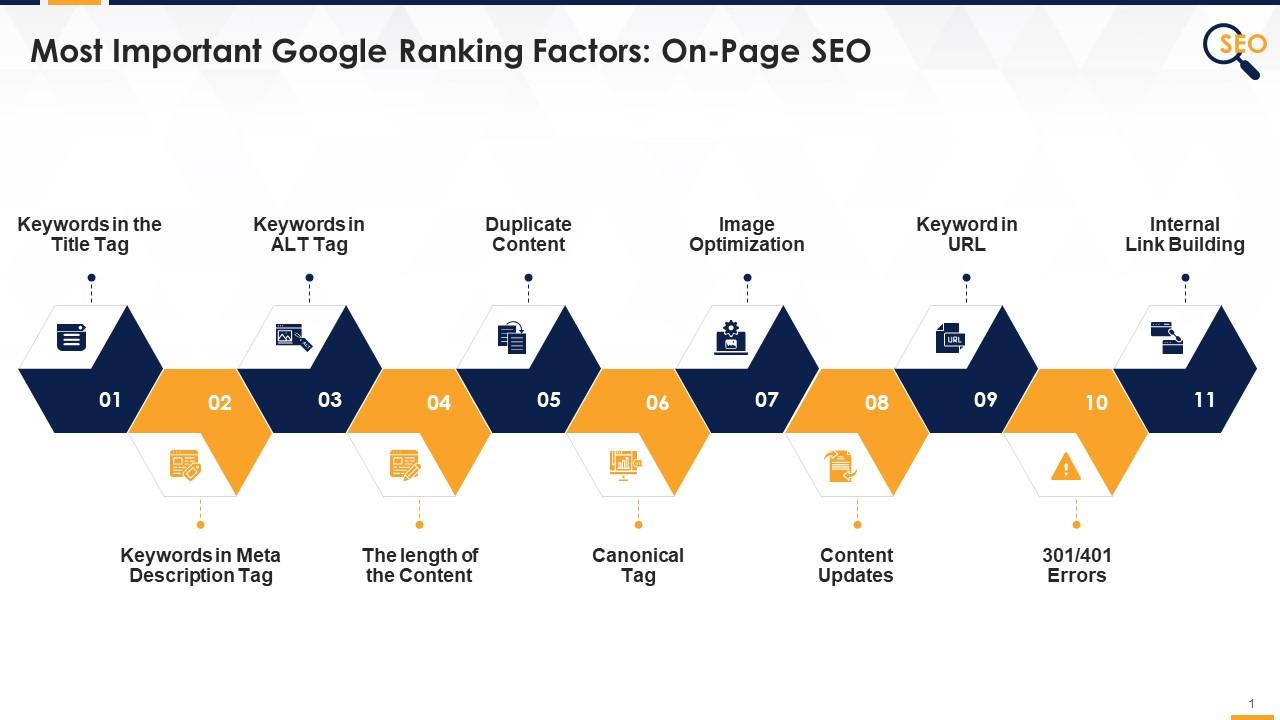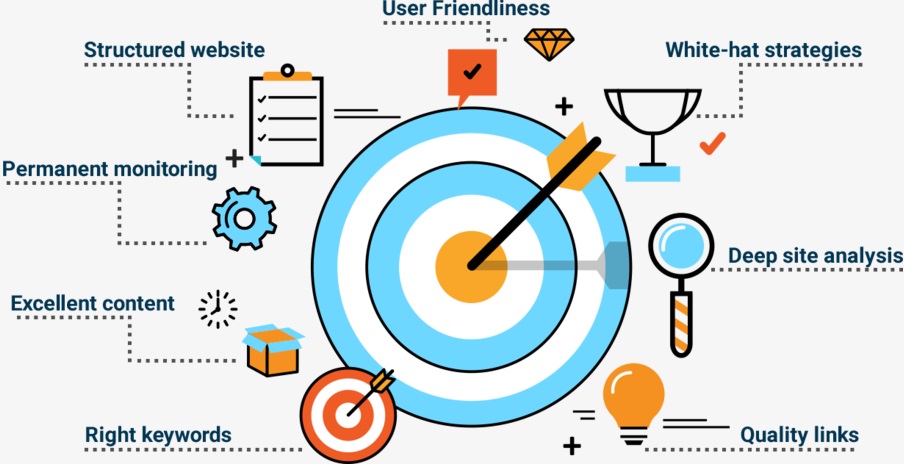
Getting started with on-site SEO
Are you looking for an on-site seo guide? Nowadays, SEO has become an important factor for any website. If your website does not have the desired position in the SERP, you must look for a way to improve your on-site seo. This article will discuss on-site SEO techniques that can help your website rank better.
What Is On-Page SEO?
On-Page SEO helps in optimizing our site, improving rankings and making it user-friendly both for search engines as well as for the users. On-Page SEO also helps in improving user experience and increasing visitor traffic. Apart from this, it also helps to increase the revenue raised by our website.

Factors of On-Page SEO:
Keyword Density:
Your content should be related to your keyword and contain a minimum keyword density. You must make your content unique and try to find the right combination of words before including them on your website.
Content-Length:
The content length is an important factor in On-Page SEO. Make sure that the content length on your site is large enough. The length of the article or page has an important role to play when it comes to SEO.
Title Tag:
Make sure that you have high-quality content in your title tags. If a visitor comes to your site, then he should be able to understand the main topic of your website from your Title tag.

Page Authority:
Page Authority is a factor that helps in determining the quality of pages on your website. It indicates how many pages are important in getting a visitor to click on it. The higher the Page Authority, the more pages can get a higher rank for search engines like Google and Bing.
Description Tag:
Another important factor is the description tag. Make sure that you have a natural description tag. It should be brief, giving enough information to entice people to click on your site. The length of your site’s description tag is also important. Make it specific not too long or short.
Meta Description Tag:
The Meta description tag is also an input for search engines. It helps them to know about the page and helps them to understand your brand. It also should be brief and should include enough information about your site.

What is the importance of On-Page SEO?
Improve Rankings:
SEO is the most important part of your website marketing. If your site ranks low in SERP, it will not get any visitors. It’s necessary to think about on-site SEO because a high ranking in SERP gives instant conversion and increases the number of visitors.
Improve User Experience:
You can easily improve user experience with on-page SEO. Search engines like Google always prefer pages that are informative and have unique content because users like them best. Unique and informative content is useful for users and also for search engines. This will help you in getting a higher ranking and better conversion rates.
What are the Ways to optimize your On-page SEO?
– Follow the Google’s Webmaster Guidelines
– Unique and Informative Content
– High Page Authority
– Longer content
– Header Tags and Meta tags etc.
– Avoid Duplication in Content
– DO NOT write duplicate articles or pages of the same name
– Validate Your Site Code
Here are a few things you can do to optimize your on-page SEO:
Where You Will Learn:
- Targeting and Segmentation
Email Marketing
Reputation Management
Strategic Keyword Research
Search Engine Optimization
Mobile Marketing
Conversion Design Principles
Search Engine Marketing
Digital Strategy
Budget Management
Online Advertising
Social Media Marketing
Web Design
Campaign Metric Analysis
Paid Ad Strategy
If you want to know how to improve on site seo, follow the tips given below:

Content Needs to be Unique:
It is important to write unique content for your website. Make sure that your content selection is based on the keyword and topic. You should also make sure that you use words that are commonly searched. It will give a better user experience, and the search engine will have an easy time indexing your site.
Use H1 & H2 Tags for Titles and Subtitles:
Using H1 and H2 tags for your titles and subtitles is necessary. It will give a better search engine ranking. The title tag should be 4–6 words maximum, while the subtitle tag should be 2–3 words maximum to give more importance to your content.
Content Layout:
It is also important to make sure that your content is organized in a better way. It should be placed correctly on the page, or you should use CSS for it.
Prioritize Outbound and Internal Linking Opportunities:
On-page SEO also includes prioritizing outbound and internal linking opportunities. It will help you get a higher ranking, increase site usability and make it user-friendly. Try to have at least one outbound link on your home page. It will give a better ranking for your page in search engines like Google and others.

